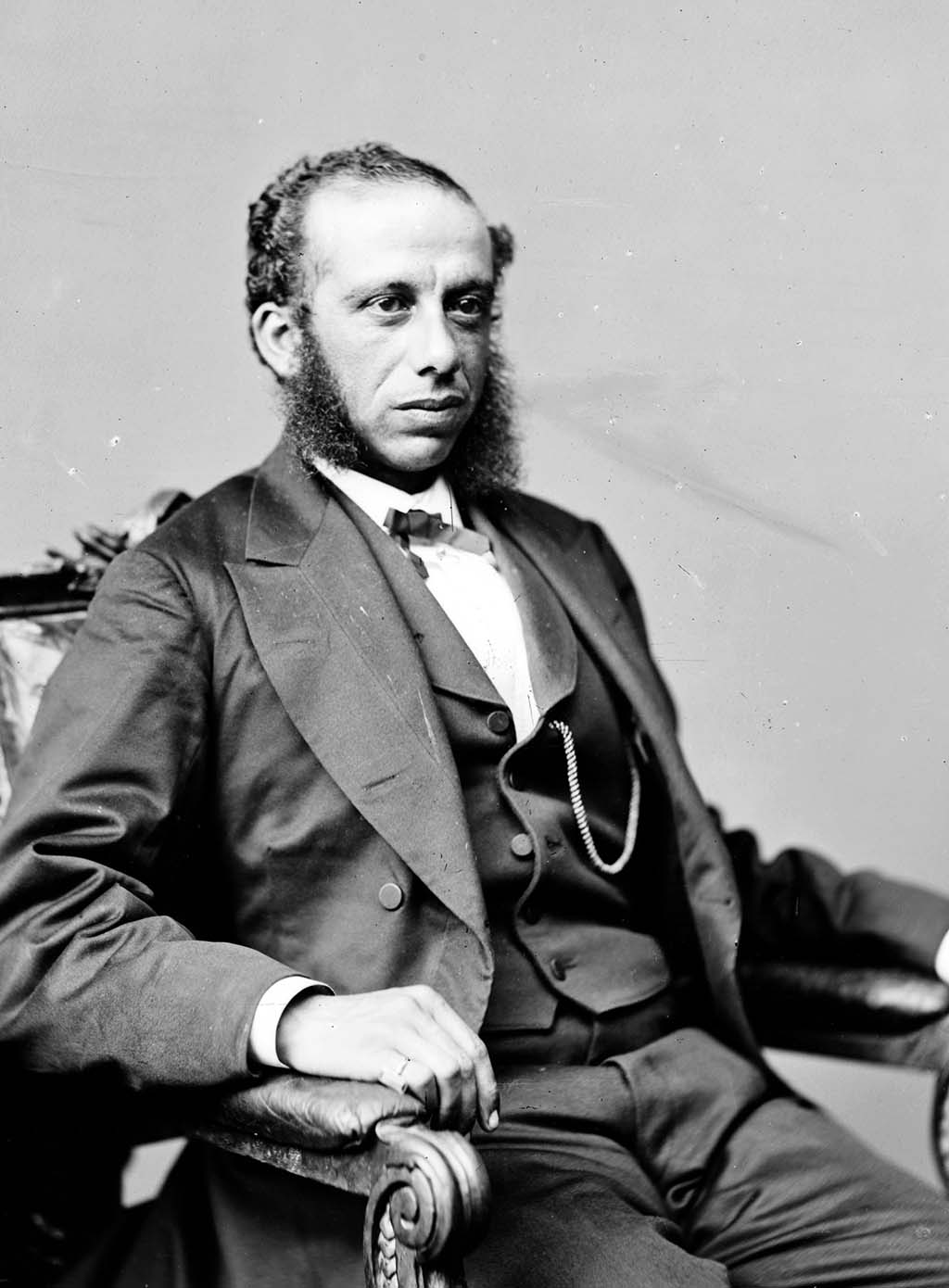Robert Carlos DeLarge was born a slave in Aiken, South Carolina on March 15, 1842. Rare for that period, DeLarge graduated from Wood High School in Charleston and worked as a tailor and farmer before becoming involved in politics. He served as an agent for the Freedman’s Bureau and helped organize the Republican Party in South Carolina. In 1867, DeLarge chaired the platform committee at the Republican state convention which published a report calling for the following reforms: the abolition of capital punishment; tax reform; popular election for all offices; welfare assistance; the breakup of land monopolies; court reorganization; and liberal immigration laws.
In 1868, DeLarge was a member of the South Carolina Constitutional Convention which revised the state’s existing constitution. At this convention, DeLarge lobbied for a petition asking the U.S. Congress for a $1 million grant to purchase land to sell to the state’s land-hungry poor. After the constitutional convention, DeLarge moved quickly from one important position to another. During the 1868 and 1869 sessions of the state legislature, DeLarge chaired the Ways and Means Committee. In 1871, the state legislature chose DeLarge as land commissioner for the state. As land commissioner, he was implicated, but then cleared of charges of land fraud.
In 1870, DeLarge was elected to represent South Carolina’s Second Congressional District in Washington. DeLarge began his term as U. S. Congressman on March 4, 1871. However, he was not allowed to serve his entire term. On January 24, 1873, his seat was declared vacant as the result of charges of election fraud levied by his Democratic opponent, Christopher C. Bowen. When he left Washington, DeLarge returned to South Carolina, and lived briefly in the capital city of Columbia until he was appointed a Charleston magistrate. DeLarge served the people of Charleston until his death at the age of thirty-one on February 14, 1874.

